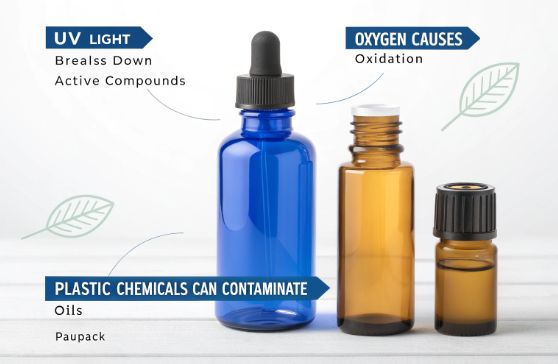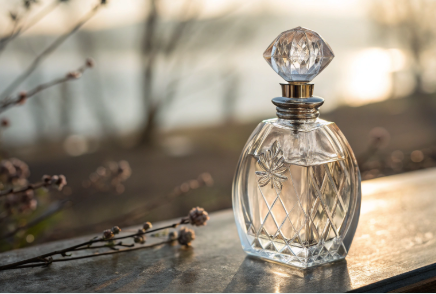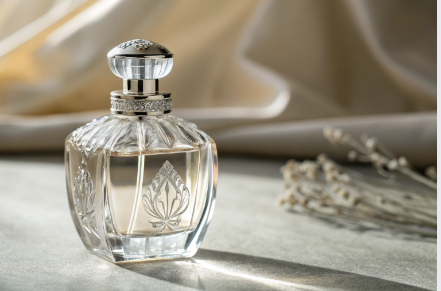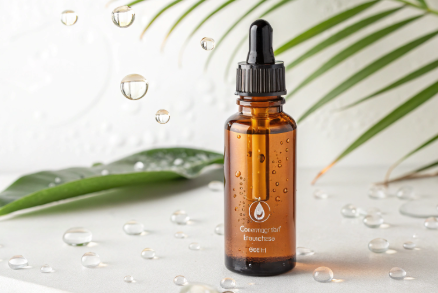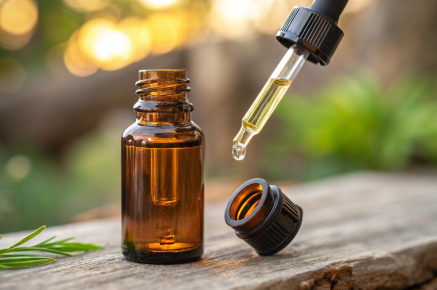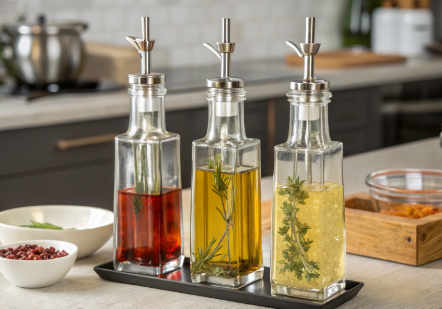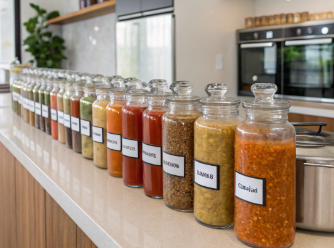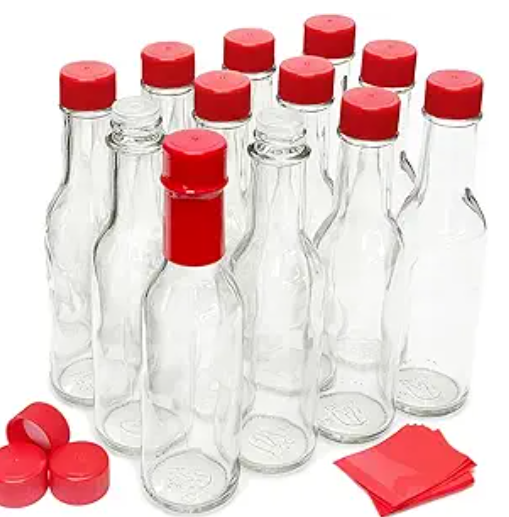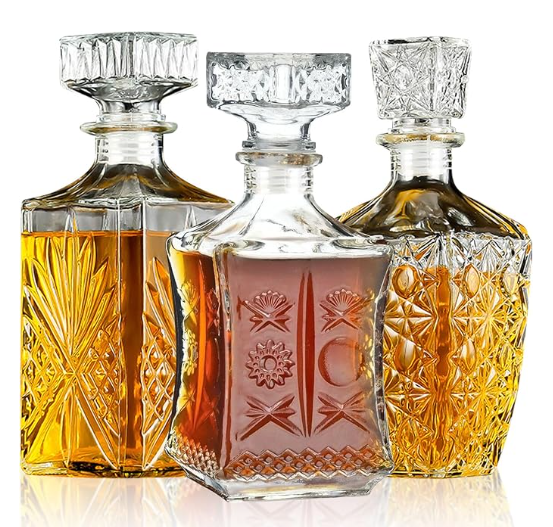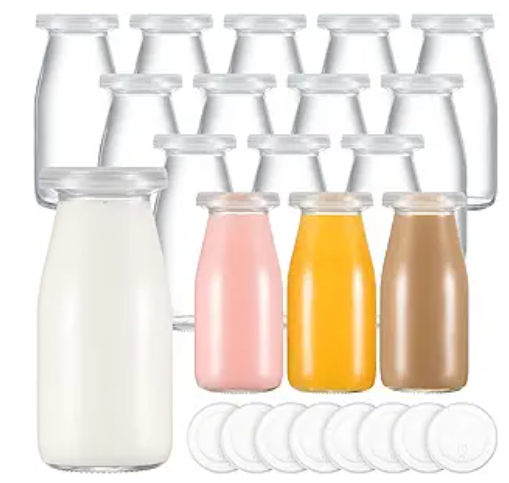Perfume in the wrong bottle can ruin its magic—evaporation, chemical breakdown, and even a plastic-like smell? No thanks.
Perfume should ideally be stored in glass bottles, especially when long-term quality and fragrance integrity matter. Plastic can absorb or react with perfume components, altering its scent and strength.
When I talk to brand founders and sourcing managers, the question often comes up: “Can we use plastic bottles for perfume to save cost?” The short answer? You can, but should you? Let’s break it down.
Is perfume better in glass bottles or plastic bottles?
Plastic might be lighter and less fragile—but is it worth the risk?
Glass bottles are the superior choice for storing perfume due to their chemical stability and barrier properties. Plastic bottles may interact with perfume oils, leading to scent degradation.
Why Glass Wins in Perfume Packaging
1. Chemical Stability
Glass is inert, which means it won’t react with your fragrance. This is crucial because even slight chemical reactions can distort a scent, making it smell sour, faded, or chemically off-putting. Plastic, on the other hand, is made from polymers that can interact with alcohol and essential oil components.
At PauPack, we’ve seen firsthand how a switch from plastic to glass improved product shelf life for a niche fragrance brand by over 18 months. The change wasn't just chemical—it was commercial.
2. Fragrance Integrity
Perfume is a blend of volatile oils and alcohols. These molecules are sensitive—they oxidize, evaporate, or degrade when exposed to air or light. Glass, especially thick or tinted glass like amber or cobalt blue, provides a physical and chemical barrier.
3. Aesthetic and Premium Appeal
First impressions matter. Glass doesn’t just protect—it performs. The clarity, weight, and feel of glass bottles create a premium user experience that aligns with the luxury perception of perfume.
| Feature | Glass Bottles | Plastic Bottles |
|---|---|---|
| Barrier Quality | Excellent | Poor to Moderate |
| Recyclability | 100% Recyclable | Limited (varies by region) |
| Brand Image | Luxurious, Premium | Low-cost, Temporary |
| Design Options | Endless (frosted, tinted, shaped) | Limited |
4. Sustainability and Compliance
At PauPack, our glass bottles are manufactured in ISO- and FDA-certified facilities using 80% closed-loop water systems and 100% renewable energy sources. This ensures not only high-quality production but also eco-aligned branding for our clients.
Can essential oils be put in plastic bottles?
Think again before decanting your favorite essential blend into a plastic dropper.
Essential oils should be stored in amber or cobalt glass bottles to protect their potency and avoid chemical interactions with plastic.
Understanding Essential Oil Reactivity
Essential oils are powerful concentrates extracted from plants. They're often acidic or solvent-like—citrus oils, for instance, can dissolve plastic over time. When this happens, not only does the bottle degrade, but the oil gets contaminated.
Risks of Using Plastic:
-
Chemical Leaching: Components like BPA or phthalates from the plastic can enter the oil.
-
UV Exposure: Plastic rarely blocks light effectively, accelerating oil oxidation.
-
Loss of Volatility: Oils can evaporate faster through plastic barriers, weakening their aroma and therapeutic effect.
Why Amber Glass is Industry Standard
Amber glass protects against UV light and maintains oil purity. That’s why we at PauPack recommend amber dropper bottles for essential oil brands, especially those sold in high-end aromatherapy and wellness markets. These bottles not only preserve the product but also convey a natural, earthy aesthetic that resonates with eco-conscious consumers.
Why is perfume not in a plastic bottle?
If plastic is cheaper and lighter, why don't you see it in luxury perfumes?
Perfume is rarely packaged in plastic bottles because plastic interacts with fragrance compounds, compromising scent quality and product longevity.
The Real Reason Behind Glass Dominance
1. Scent Integrity
Plastic can absorb or react with alcohols and oils. For example, a citrus-based cologne in a PET bottle might smell off within weeks—something that wouldn’t happen in thick glass.
2. Evaporation and Barrier Failure
Plastic isn’t completely impermeable. Perfume molecules can slowly diffuse through plastic walls, leading to product loss and shelf-life issues. This is especially critical for e-commerce or hot-climate shipping.
3. Branding and Experience
No one wants to associate “luxury” with “disposable.” In consumer psychology, the packaging directly impacts perceived value. Glass says "premium," while plastic—unless uniquely styled—says "budget."
4. Regulatory and Export Challenges
High-end markets like the EU and Japan have strict packaging guidelines for cosmetics and fragrances. Some plastics may not be approved for prolonged contact with alcohol-based solutions. That’s why at PauPack, we provide full compliance reports for our clients, ensuring smooth customs clearance and retail approvals globally.
What is the best material to store perfume in?
What if glass isn’t the only game in town?
The best material to store perfume is glass—particularly amber or frosted variants—for maximum UV protection, chemical stability, and luxury appeal.
Exploring Alternatives
| Material | Pros | Cons |
|---|---|---|
| Amber Glass | Blocks UV light, non-reactive, upscale look | Heavier, fragile |
| Frosted Glass | Aesthetic, high-end, UV semi-protection | Costlier |
| Aluminum | Lightweight, opaque, chemical-resistant | Prone to dents, not transparent |
| PET (Plastic) | Lightweight, shatterproof, cheap | May react with perfume, degrades over time |
When Aluminum Makes Sense
In travel sprays or refill tubes, aluminum is a viable option. It’s lightweight, shatterproof, and blocks all light. That’s why we offer aluminum-shell atomizers with anodized coatings—non-reactive and safe for short-term storage or sampling.
PET: Only for Non-Alcohol Fragrances
Some body mists or linen sprays without alcohol bases can be safely stored in PET bottles. We manufacture high-clarity PET containers for budget-conscious lines where cost and weight trump longevity.
Case Studies from PauPack
At PauPack, we’ve collaborated with over 200 global clients to develop sustainable, functional, and beautiful fragrance packaging. Here are a few stories:
-
Nordic Wellness Brand: Transitioned from PET to amber glass dropper bottles for their essential oil blend series. Sales increased 25% following rebrand—consumers cited "premium feel" and "eco-credibility" as key factors.
-
Luxury Perfume House in Paris: Custom-designed square frosted glass bottles with gold-tipped pumps. These not only won design awards but also maintained scent profile over 24 months.
-
US Amazon Seller: Initially used clear plastic bottles for room sprays. High return rate due to scent degradation. Switched to PauPack's aluminum mini-sprayers and saw customer satisfaction rise by 40%.
Conclusion
Glass remains the gold standard for perfume and essential oil storage—protecting fragrance, boosting appeal, and delivering on brand promises. Whether you’re launching a luxury line or a wellness product, choosing the right packaging isn’t just about looks—it’s about preserving what you’ve crafted. At PauPack, we package your ideas and pack your brand with confidence.




